Index relies entirely on the support of donors and readers to do its work.
Help us keep amplifying censored voices today.
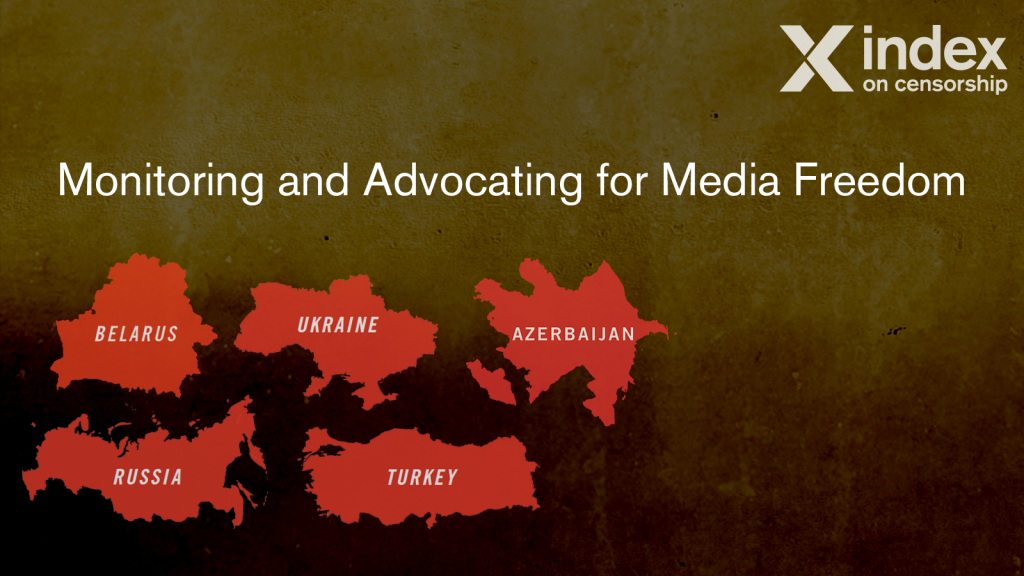
Index on Censorship’s Monitoring and Advocating for Media Freedom project monitors threats, limitations and violations related to media freedom in Azerbaijan, Belarus, Russia, Turkey and Ukraine. Previously these countries were also included in the Mapping Media Freedom project, which Index incubated and managed between 2014 – 2018.
This report summarises policy recommendations based on analysis since April, 2019. The recommendations are based on research by in-country correspondents and Index staff. Country reports published by the project since April are available on the project webpage.
After a brief background section, the report sets out key policy recommendations that apply to all the project countries, followed by key recommendations for each project country.
Background
It is essential that media freedom groups and international organisations continue to monitor, verify and document threats, limitations and violations related to media freedom in Azerbaijan, Belarus, Russia, Turkey and Ukraine, continue to raise awareness about the challenges and to advocate for change. Media freedom is severely restricted in all these countries and journalists are under great pressure.
Violence against journalists; misuse of counter-terror and security legislation to silence journalists; travel bans that isolate journalists and impact them professionally; failure to investigate violent crimes against journalists and silencing and punishing journalists through defamation and insult laws – all these are familiar tactics and increasingly common. In more recent years the introduction of restrictive internet-related legislation, such as in Russia, has opened a new frontline in the fight to safeguard media freedom.
RECOMMENDATIONS FOR ALL PROJECT COUNTRIES
Governments and multilateral groups, in particular the European Union (EU), must take a strong stand in defence of media freedom and journalists, both in their bilateral relations with the project countries and in multilateral processes. Governments and the EU should ensure that issues such as proposed or existing legislation that restricts media freedom, violence against journalists and failures to investigate crimes against journalists, form part of the agenda in strategic bilateral and multilateral discussions.
Countries that have a version of the Magnitsky Act (in the EU, this includes Estonia, Latvia, Lithuania and The Netherlands) should consider making use of this legislation in cases where media freedom and the safety of journalists are at stake. Countries that have not yet introduced such legislation should consider doing so. The UK should put its Magnitsky amendment into use.
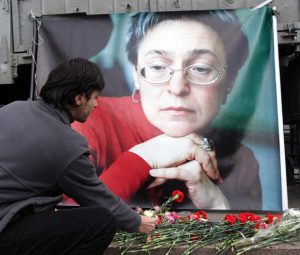
A man lays flowers near the picture of murdered journalist Anna Politkovskaya, during a rally in Moscow, Russia, 7 October 2009. CREDIT: EPA / Alamy Stock Photo
Impunity is a major challenge in all the project countries. In Azerbaijan, the death of freelance journalist Rafic Tagi, who died in hospital after a stabbing in 2011, has never been investigated properly. Belarussian cameraman Dzmitry Zavadski disappeared in 2000 on his way to meet journalist Pavel Sheremet, later killed in Ukraine in 2016. Zavadski’s body was never found.
The instigator of the 2006 contract killing of investigative journalist Anna Politkovskaya in Russia is still not known, nor is the motive. In 2018 the European Court of Human Rights found that the Russian authorities had failed to carry out an effective investigation into her killing. Turkey failed to investigate the death of editor Rohat Aktaş, killed when he was covering hostilities between Kurdish separatists and Turkish forces in 2016.
Ukrainan journalist Pavel Sheremet was killed by a car bomb in Kyiv in 2016 and, despite statements from the authorities that the case is a priority, there has been no progress. All the project countries should commit to investigating unsolved killings of journalists and should implement the guidelines in recommendation CM/Rec(2016)4 of the Committee of Ministers of the Council of Europe.
In relation to impunity, the guidelines envisage that when investigations and prosecutions have not resulted in justice member states can consider establishing special inquiries or independent specialised bodies, and that the latter could involve participation by respected media and/or civil society figures.
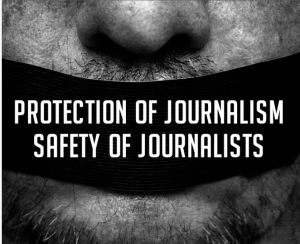 Council of Europe member states must engage fully with the platform for journalism
Council of Europe member states must engage fully with the platform for journalismCouncil of Europe member states must engage more actively with the Council of Europe’s Platform for the protection of journalism and safety of journalists. The partner organisations of the platform, which include Index on Censorship, should continue to use the platform to raise awareness of media freedom violations and threats to journalists. This should include advocating for states to respond to all alerts communicated to the platform.
The overall response rate from states in 2018 was only 39%. It is also important that states provide substantive replies to alerts and engage in follow-up dialogue with the partner organisations. The platform is an underused mechanism, with potential to achieve more. Partner organisations can also be of assistance to member states that are willing to engage fully.
Belarus is not a member of the Council of Europe, but other international organisations and processes, such as the special procedures of the United Nations human rights council, should be engaged to follow up cases and issues in Belarus.
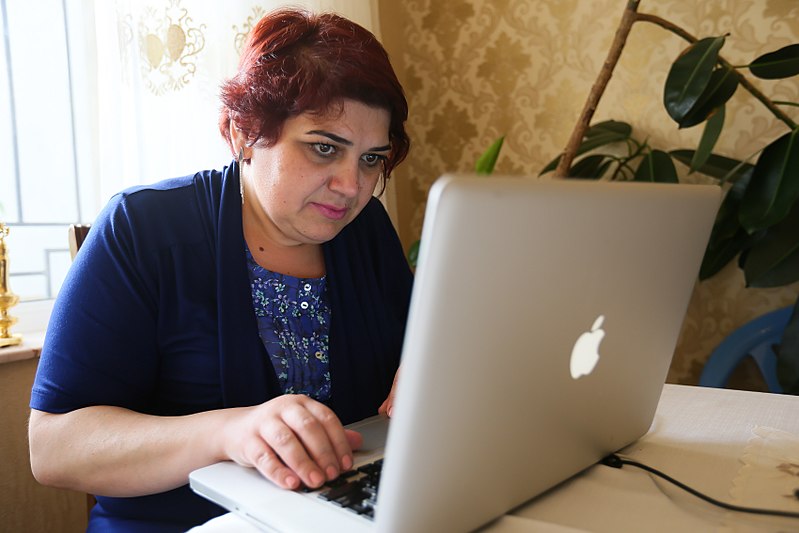
Azerbaijan must halt its use of travel bans for journalists including Khadija Ismayilova
The EU must use its influence to defend media freedom and journalists in Azerbaijan. Negotiations on an agreement to replace the EU-Azerbaijan Partnership and Cooperation Agreement, in place since 1999, are at an advanced stage and will need to be brought to a conclusion by the new European Commission. It is extremely important that the EU raises media freedom and human rights in these negotiations.
In 2018, the European Parliament adopted a resolution which recommended that the EU should make deepening of relations with Azerbaijan conditional on respecting democratic values and human rights, and that it should ensure that Azerbaijan frees its political prisoners (including journalists such as Afgan Mukhtarli) before the negotiations on a new partnership agreement are concluded. Mukhtarli remains imprisoned.
Azerbaijan must refrain from targeting journalists’ online activities, including through call hacking, internet blocking and distributed denial-of-service (DDoS) attacks. In October, internet blockages and disruption to mobile phone services were reported in central Baku in connection with ongoing protests. Several journalists were also detained or subjected to physical violence during the protests. Social media platforms such as YouTube should respect Azerbaijani users’, including journalists’ right to seek, receive and impart information. Platforms should implement terms and conditions consistently and transparently, including when dealing with harassment of journalists by alleged state-sponsored trolls.
Azerbaijan must halt its use of travel bans for journalists. For example, the well known journalist Khadija Ismayilova is currently under a travel ban. OSCE Media Freedom Representative Harlem Désir has stated that it is a serious hindrance to her work as a professional journalist.
Belarus must amend the law on mass media. The legislation currently requires journalists, including freelancers, who work for media outlets registered outside Belarus to obtain accreditation from the foreign affairs ministry. This has led to journalists being fined repeatedly. At a very minimum, Belarus must urgently establish procedures that enable journalists to appeal rejected accreditation requests.
Other governments must make it clear to Belarus that restrictive and repressive actions against journalists will not be tolerated. This applies to the requirements for accreditation for journalists working for non-Belarussian media outlets above, but also to the practice of detaining journalists for short periods. Some observers have credited Belarus’ tendency to impose fines on journalists or to detain them for short periods – rather than sentence and imprison them – as an attempt to build alliances in the West at a time when relations with Russia are weak. Other governments need to signal clearly it is not acceptable.
In the case of Belarus, which is not a member of the Council of Europe, it is important that support and training aimed at enabling journalists to defend their rights includes training on other international organisations and processes, such as the special procedures of the United Nations human rights council, including the special rapporteur on the situation of human rights in Belarus.
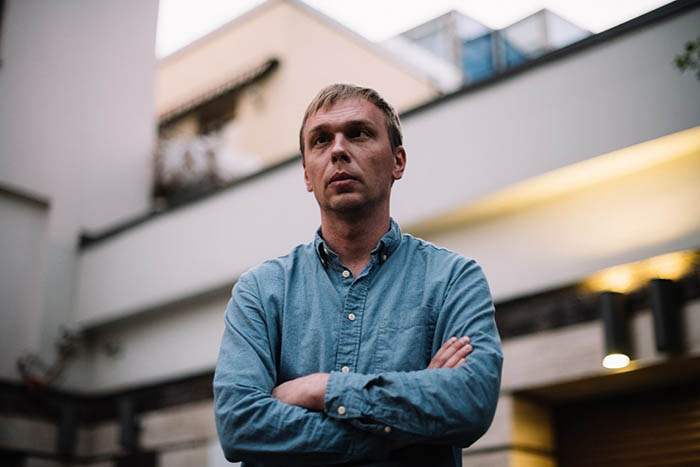
Russia must investigate cases of trumped-up charges against journalists such as Ivan Golunov
Russia must refrain from finalising the legislative changes that would extend the scope of “foreign agent” to individual journalists. Existing problematic legislation already requires media outlets that receive funds from abroad to register as foreign agents. At the time of writing the Duma has approved changes that would extend this to individual journalists, including freelance journalists and bloggers. Any one of these receiving payments for services, or a salary from abroad, would need to register with the ministry of justice. All published work would need to display a “foreign agent” label. This legislation should not proceed, and existing legislation that labels media outlets as foreign agents should be reviewed.
Access to court proceedings is a frequent problem for journalists. As stated in Opinion No. 8 of the Consultative Council of European Prosecutors: “Transparency in the performance of the prosecutor’s duties is an essential component of the rule of law, and one of the important guarantees of a fair trial. Not only must justice be done, but it must also be seen to be done. In order for this to be possible, the media should be able to provide information on judicial, criminal or other proceedings” (paragraph 30). The authorities must review existing processes for compliance with international standards.
The authorities must thoroughly investigate cases of trumped-up charges against journalists and ensure that the instigators are brought to justice. Recent incidents include the high-profile case of Ivan Golunov, arrested for possession and trafficking of drugs, and what appears to be a fake letter sent in the name of Nikita Telizhenko with the aim of discrediting him.
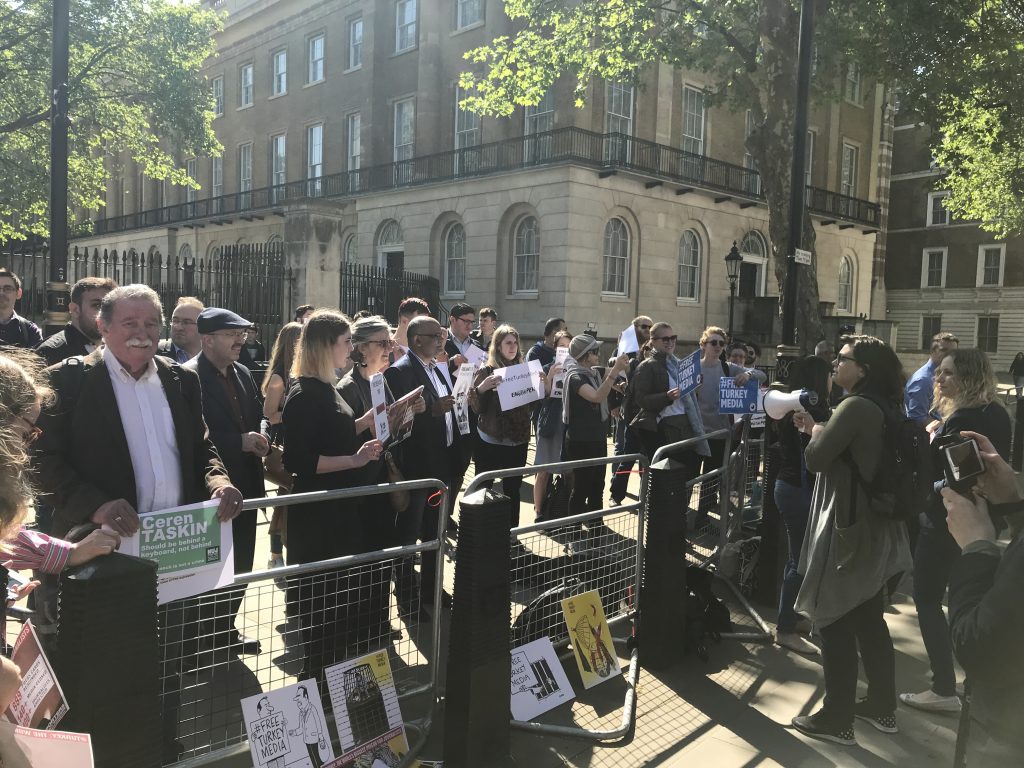
Index on Censorship magazine editor Rachael Jolley leads chants in support of Turkey’s jailed journalists ahead of Turkish President Erdogan’s visit to Downing Street in May 2018
The judicial reform strategy (JRS), launched in May, 2019, will not achieve any meaningful change, at least not in its current form. Turkey’s judicial system is not independent: it is overloaded with cases, many which concern journalists, and it has been undermined through the large-scale dismissal of judges. It is extremely important that other countries and international organisations scrutinise the judicial reform strategy, and make it clear that in its current form it is completely inadequate when it comes to addressing the enormous structural problems of the judiciary.
In May 2019, the United Nations special rapporteur on the promotion and protection of the right to freedom of opinion and expression published a follow-up report to an earlier visit to Turkey in 2016. The rapporteur had made a series of recommendations in 2016, which included releasing jailed journalists and reversing the closure of media outlets. The follow-up report found that Turkey had either failed to implement or had contravened all the recommendations, with the exception of one (lifting the state of emergency). Turkey should urgently implement all the recommendations made by the United Nations special rapporteur.
Diplomatic representations and international organisations, including the EU, need to support observation of trials that involve journalists and media outlets. High-profile trials in central locations can be well-attended by observers, but coverage of trials in remote locations is more limited. Support can include sending representatives to follow trials and/or financial support for organisations that monitor trials.
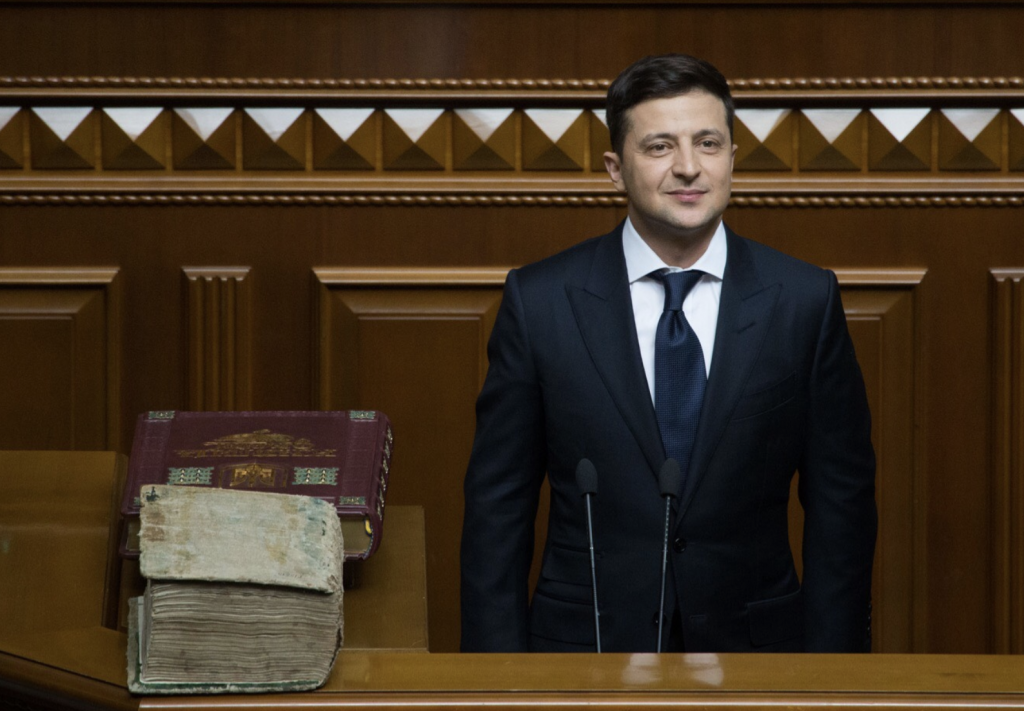
Ukraine President Volodymyr Zelenskiy must engage with the media. Photo: Wikimedia
The government needs to undertake an independent and transparent review of state support, including financial support for far-right groups associated with extremism. The review should involve international experts. It should include investigating the possibility of state security force collusion with paramilitary and extremist organisations and thorough investigations of alleged involvement in violence against journalists, such as the unsolved murder of Oles Buzina.
President Volodymyr Zelenskiy reportedly held a 14-hour press conference in October, attended by 300 journalists. Whether it signals a new era in the relationship between Ukraine’s elected representatives and the media remains to be seen. The failure of the president and lawmakers to engage meaningfully with the media in the past has been a challenge for journalists and this needs to change.
In the highly divisive media landscape, the role of the public broadcaster is extremely important. Ukraine’s public broadcasting company is severely underfunded and currently has a very small audience. As Index on Censorship outlined in its Demonising the Media report a year ago, a significant but underreported trend in the region is the threat to public broadcasters. A number of national broadcasters in the EU and neighbouring countries were brought under closer government control in 2014-18. Ensuring both sufficient funding and editorial independence are crucial in ensuring the public’s right to know is defended.
[vc_row][vc_column][vc_column_text]
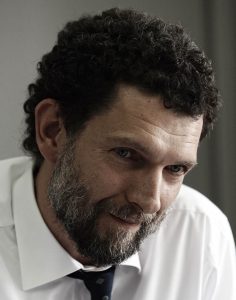
Osman Kavala. Credit: Anadolu Kültür
We, the undersigned human rights and freedom of expression organisations, condemn the interim judicial decision taken in the second hearing of the Gezi Park trial. The indictment accuses 16 civil society figures and arts practitioners in Turkey of having planned to “attempt to overthrow the government” and of having financed the peaceful Gezi Park protests. If found guilty, they face a sentence of life imprisonment without parole.
We share the view that “the trial is in itself an act of intimidation”, having been opened 6 years after the Gezi protests took place in 2013. We are extremely concerned that this trial may once again contribute to creating a chilling effect on the fulfillment of the rights to freedom of assembly and expression and the legitimate right to protest as enshrined in the Turkish Constitution. We call for a concerted response by the European Union and Europe Member States to put urgent, consistent and collective pressure upon the Government of Turkey to restore the rule of law and the independence of the judiciary in Turkey.
On 18 July 2019, the judicial panel decided to reject the requests of defence lawyers for the release of Osman Kavala from 21 months of pre-trial detention and for the lifting of judicial control measures, including the travel ban, on the other defendants. Sarah Clarke, ARTICLE 19’s Head of Europe and Central Asia, said: “This decision represents a disturbingly clear example of the continuous absence of the rule of law and lack of independence of the judiciary in Turkey.” The indictment itself shows the total lack of tangible evidence for these allegations.
We strongly object the continuing pre-trial detention of Osman Kavala, who has now been in a maximum-security prison for 631 days. Kavala said in his defence statement, “I was never asked to make any statements during my time in detention or in custody with the police in relation to the allegations against me. I was not questioned by the prosecutor at any time after I was arrested. The indictment was prepared 16 months after I was arrested and this too indicates that there was no evidence to hand.”
Grounds for Kavala’s arrest are insufficiently supported in the indictment, raising serious concerns relating to the proportionality and legitimacy of his arrest. The lengthy pre-trial detention, which started 4 years after the Gezi Park protests took place, is unwarranted and disproportionate as a legal precaution against the defendant’s absconding or posing a ‘threat to society’. The excessive length of Kavala’s pre-trial detention of 21 months, his rights to presumption of innocence, to humane treatment, to the right to a fair trial and to liberty and security have all been violated in the most unnacceptable manner.
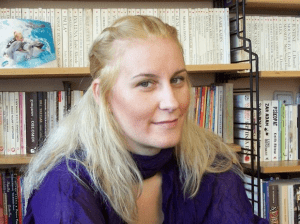
The 16 individuals named in the ruling are: Osman Kavala, Meltem Arikan (pictured), Memet Ali Alabora, Pinar Ogun, Can Dündar, Mücella Yapıcı, Tayfun Kahraman, Hakan Altınay, Gökçe Yılmaz, Can Atalay, Çiğdem Mater Utku, Hanzade Hikmet Germiyanoğlu, İnanç Ekmekçi, Mine Özerden, Yiğit Aksakoğlu, Yiğit Ali Ekmekçi. (Photo: Wikipedia)
During the second hearing, defence lawyers argued that the evidence collected between May and November 2013 in relation to the Gezi protests was “re-evaluated”. In an earlier case drawing on some of the same evidence, an Istanbul court in 2015 acquitted all 26 defendants (including two of the defendants in the current Gezi Park case, (Mücella Yapıcı and Tayfun Kahraman). In the current case, the court has failed to take into consideration that 2015 judgement.
Furthermore, the defence demonstrated the inappropriateness of the charges under Article 312 of the Turkish Criminal Code which clearly includes the reference to an “act of force or violence” in the definition of the offence. The 2013 Gezi Park protests represented a peaceful and non-violent movement. The actual excessive use of force was that used by the police against civilians including the extensive use of teargas against the crowds. The indictment, as the defence lawyers proved time and again, contains no reference to an armed organisation (as per Article 314 of the Turkish Criminal Code), which further questions the basis of the accusations.
Norwegian PEN President, Kjersti Løken Stavrum said, “We will continue to monitor this trial and to advocate for all charges to be dropped against the 16 defendants. The fact that the 657-page indictment, bereft of concrete evidence, was accepted by the judicial panel is sadly, once more a clear indication of the poor state of the rule of law in Turkey.”
The next hearing of the Gezi Park trial will take place in Silivri on 8-9 October 2019, when other defendants will be heard and plaintiffs’ requests will be evaluated by the court.
ARTICLE 19
Articolo 21
Danish PEN
ECPMF (European Centre for Press and Media Freedom)
English PEN
Front Line Defenders
Index on Censorship
Norwegian PEN
OBC Transeuropa
PEN America
PEN Flanders
PEN International
PEN Netherlands
PEN Suisse Romand
PEN Turkey
RSF (Reporters Without Borders)
SEEMO (South East Europe Media Organisation)
Swedish PEN
Swiss Italian and Reto-Romanch PEN Centre
Wales PEN Cymru[/vc_column_text][vc_basic_grid post_type=”post” max_items=”4″ element_width=”6″ grid_id=”vc_gid:1563959006215-1e666f90-a594-0″ taxonomies=”55″][/vc_column][/vc_row]
[vc_row][vc_column][vc_single_image image=”108169″ img_size=”full”][vc_column_text]Above: Tehran: City of Love © Here and There Productions[/vc_column_text][vc_column_text]This public symposium will reflect on the paradox of creative constraints in contemporary cinema from the Middle East – a day of film screenings and panel discussions with filmmakers, funders and programmers, including some of the most innovative rising talents as well as established experts.
Freedom of expression is often understood solely through the lens of state censorship. This symposium, however, starts from the premise that social, economic and other constraints shape any film from the outset, rather than only coming at the end of the process in the form of intervention by the state or other parties. It seeks to explore the different kinds of limitations on freedom of cinematic expression, from funding through to problems on set, lack of local distribution and travel restrictions, as well as the complex negotiation between constraints and political and creative impulses behind the films. It will deal with questions such as what types of constraints do filmmakers face when they make and distribute films in the region? To what extent are these constraints either productive or harmful? How do the creative strategies used by filmmakers evolve in response to the constraints?
The symposium will offer new insights into filmmaking from the region, revitalising debates on cinematic creativity in sites of conflict and crisis in the Middle East and beyond.
Confirmed speakers include:
Mounia Akl, Film Director, Submarine (Lebanon, US, 2016)
Naziha Arebi, Film Director, Freedom Fields (UK, Libya, 2018)
Shirin Barghnavard, Film Director, Profession: Documentarist (Iran, 2014)
Fay Breeman, Manager, Hubert Bals Fund of the International Film Festival Rotterdam
Tamer El Said, Film Director and Co-Founder, Cimatheque, Cairo
Julia Farrington, Associate Arts Producer, Index on Censorship
Yael Friedman, Documentary Filmmaker and film scholar
Malu Halasa, Writer and Editor
Ali Jaberansari, Film Director, Tehran: City of Love (Iran, UK, Netherlands, 2018)
Basil Khalil, Film Director, Ave Maria (Palestine, France, Germany, 2015)
Rima Mismar, Executive Director, Arab Fund for Arts and Culture
Persheng Sadegh-Vaziri, Documentary Filmmaker and Film Scholar
Naghmeh Samini, Screenwriter
Elhum Shakerifar, BAFTA-nominated film producer, MENA programme advisor for the BFI London Film Festival and Film Curator for Shubbak, festival of contemporary Arab culture
Full schedule available here.[/vc_column_text][vc_column_text]
[/vc_column_text][vc_column_text]
Symposium organiser Shohini Chaudhuri has put together a reading list of articles dealing with constraints in Middle Eastern cinema from the Index on Censorship magazine archive.
[/vc_column_text][/vc_column][/vc_row][vc_row][vc_column][vc_column_text]Presented in partnership with:[/vc_column_text][vc_row_inner][vc_column_inner width=”1/3″][vc_single_image image=”108172″ img_size=”full” onclick=”custom_link” link=”https://mosaicrooms.org/”][/vc_column_inner][vc_column_inner width=”1/3″][/vc_column_inner][vc_column_inner width=”1/3″][/vc_column_inner][/vc_row_inner][/vc_column][/vc_row]
[vc_row][vc_column][vc_single_image image=”104907″ img_size=”full”][vc_column_text]In just a few days, Dutch historian Tayfun Balcik, programme coordinator at The Hague Peace Project, a non-governmental organisation, will count articles by or about Muslims in four mainstream Dutch media for the last time. Since 1 November, he has counted and registered on a daily basis, building a database showing how often the word ‘terrorism’ is used in combination with ‘Muslim’, and how Muslim women are represented.
“One group is systematically framed negatively in Dutch media, and that’s problematic”, Balcik said.
The idea to analyse the reporting about Muslims quantitatively and qualitatively, emerged last year. Balcik, who has always been a very critical news consumer, explained: “I am a Muslim myself and have many Muslims in my social network. They all say that Dutch media are so negative about them, but this was left in a vacuum since there were no data. So I decided to register, neutrally and systematically. Now at least we know what we are talking about.”
Balcik cooperated with the The Hague Peace Project, online platform ‘Nieuw Wij’ (New Us) and website ‘Republiek Allochtonië’ (Republic Allochthonia). The project was funded by the Democracy and Media Foundation.
By far the most written about subject in the four papers he surveyed – centrist De Volkskrant, liberal NRC Handelsblad, right-centrist Algemeen Dagblad and conservative-populist De Telegraaf – when it comes to Muslims, is terrorism. Or, to be more precise: when any of these papers write about terrorism, it is usually about terrorism committed by Muslims. In De Telegraaf no less than 99% of terrorism-related reporting is about Muslims, according to Balcik.
In De Telegraaf “terrorism is being equated with Muslims, also but to a bit lesser extent in Algemeen Dagblad. NRC and Volkskrant are also more prone to use the word ‘terrorism’ when it comes to Muslim violence, but they use it also for violence by the extreme right or by the (Kurdish) PKK.”
Balcik said that terrorism is never used when it comes to state violence, with one exception: Iran. He added: “You could also describe actions of the Turkish state, the United States or Israel as terrorist. This needs to be discussed.”
Balcik also looked at the representation of Muslim women. He found that they were mainly portrayed as being “unfree”. In November Balcik counted 55 De Volkskrant articles in which Muslim women played a role. In 28 of those, the reader is left with the image of a “suppressed Muslima”. The burqa ban (a form of which was introduced in the Netherlands in summer 2018), gender inequality in Islam, discomfort about the headscarf, and female genital mutilation were the subjects most often written about. “And Muslim women themselves are hardly ever quoted,” Balcik added.
Volkskrant editor-in-chief Philippe Remarque dismissed Balcik’s work as “of not much value”. He told Index on Censorship: “It is logical that the words ‘Muslim’ and ‘terror’ are often combined in our reporting because these events are in the news. It doesn’t say anything about our attitude towards Muslims. Had Balcik tallied the words ‘sexual abuse’ and ‘Catholic church’ in the last couple of years, he would sure have found a correlation as well. Would he conclude that we report negatively and one-sidedly about Catholics?”
Remarque also criticised Balcik’s assertion about the paper’s coverage of Muslim women: “We try to offer a diversity of perspectives. We have a series of interviews in which Dutch people from different backgrounds talk about their experiences with discrimination. We also have a Muslim columnist, Ibtihal Jadib, who recently wrote about how she wants to convey her religion to her children. Apparently, Balcik judges her columns as negative about Muslims. I find that narrow-minded.”
Confronted with Remarque’s criticism, Balcik said: “Interesting comment from a newsmaker. As if there is no editorial line in which news is prioritised and what is called ‘terrorism’ and what isn’t. ‘News’ isn’t objective but is always a selective representation of events.” He continued: “When I would analyse the reporting about Christians or Catholics, I would tally all reporting about that group, including about Christian political parties, Christmas, Easter, churches, etcetera. Would ‘sexual abuse’ then top the topics list?”
Balcik doubted whether Remarque understood what his tally encompassed, and said: “Also, he doesn’t seem to understand how politicised and troubled the words ‘Muslim’ and ‘Islam’ have become in the Netherlands. But if he really wants a comparison, and if he has a budget, I can make the same tally and analysis about Christians and Jews in De Volkskrant. We can then sit together and compare the outcomes.”
Balcik’s aim with the project is to open a dialogue. When the tally is done, he is going to make his final analysis and write a report that discusses how the media portrays “terrorism” and “Muslim women”, in addition to the themes of “them and us rhetoric” and “criminality”. The report will then be debated at an event in an Amsterdam cultural centre, with, Balcik hopes, the participation of the editors-in-chief of the four papers. He also wants to raise the issue of the lack of diversity in the newsrooms of the four scrutinised papers.
For Elske Schouten, deputy editor-in-chief of NRC Handelsblad, this is an important point. In an email to Index on Censorship, she referred to a survey that the paper did last year, which found that Dutch print and television newsrooms had become slightly less white between 2015 and 2018: from 96.8% white in 2015, to 94.6% white by the end of 2018. This contrasts with the Netherlands as a whole, which has a non-western migration background population of 13%.
“We absolutely want to do better and we are working on that,” Schouten said. “I think it is hard for Balcik to count this. You don’t always know who is Muslim or not, or who is white or not. Take me: my name is super-Dutch but I am definitely not white.”
Asked about the value of Balcik’s research, she said: “We find diversity very important and all sorts of tallies are welcomed. However, we don’t necessarily focus on religious diversity but try to pay attention to different migration backgrounds, gender, sexual orientation or people in urban agglomerations and the periphery.”
Balcik remarked that Muslims hardly play a role on the cultural pages of the four papers, but Schouten said: “I am sure that on our cultural, economics and sports pages, people of a variety of religious paths play a role. We only make their religion explicit when it is relevant, which is usually not the case.” She paged through the last Cultural Supplement of NRC and determined that in two of the six big articles a “maybe Muslim” is the protagonist.
Balcik agrees that the religion or cultural background of the protagonist or other actors in a story isn’t always relevant, but pointed out: “When people with a migration background or Muslims contribute positively, they are ‘mayor (of Rotterdam) Ahmed Aboutaleb’, or ‘documentary maker Sinan Can’, but when the news is negative, it’s about a ‘Muslim terrorist’ or ‘Moroccan mafia’. We need to have a dialogue about this.”
Balcik would be the last to put the four papers on an equal footing when he analysed the results of his research. He said: “De Telegraaf and Algemeen Dagblad are rather extreme, while Volkskrant and especially NRC report much more meticulously.” De Telegraaf did not respond to questions from Index on Censorship.
The editor-in-chief of Algemeen Dagblad was on a holiday. His deputy, Frank Poorthuis, did not want to talk in his boss’s name, but e-mailed: “In all honesty, and between us, I, as an elderly white man, get a little bit tired of these questions because they are biased.”[/vc_column_text][vc_basic_grid post_type=”post” max_items=”4″ element_width=”6″ grid_id=”vc_gid:1548844915301-f4fe48ce-a0d7-7″ taxonomies=”11227, 8996″][/vc_column][/vc_row]